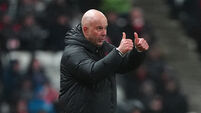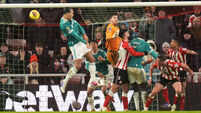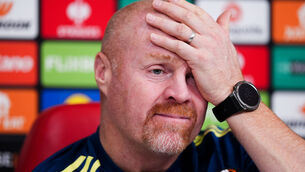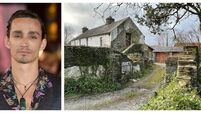Fri, 06 Feb, 2015 - 14:48
The Manchester United team before the match in Belgrade.
By Robert McNamara
Already a subscriber? Sign in
You have reached your article limit.
Subscribe to access all of the Irish Examiner.
Annual €130 €80
Best value
Monthly €12€6 / month
Introductory offers for new customers. Annual billed once for first year. Renews at €130. Monthly initial discount (first 3 months) billed monthly, then €12 a month. Ts&Cs apply.
CONNECT WITH US TODAY
Be the first to know the latest news and updates
CourtsSoccerHeathrowPlace: BelgradePlace: EuropePlace: IrelandPlace: ManchesterPlace: MunichPlace: DublinPlace: CabraPlace: DerryPerson: BusbyPerson: Robert McNamaraPerson: George BestPerson: Liam WhelanPerson: Harry GreggPerson: GreggPerson: WhelanPerson: Matt BusbyPerson: Lord BurghleyPerson: Bobby CharltonPerson: Dennis VoilletPerson: Paddy McNairPerson: Jonny EvansPerson: Geoff BentPerson: Roger ByrnePerson: Eddie ColmanPerson: Duncan EdwardsPerson: Mark JonesPerson: David PeggPerson: Tommy TaylorPerson: Walter CrickmerPerson: Tom CurryPerson: Bert WhalleyEvent: Munich air disasterEvent: LeagueEvent: European CupEvent: FA Cup finalEvent: FA CupOrganisation: Manchester UnitedOrganisation: UnitedOrganisation: LancashireOrganisation: IrelandOrganisation: DublinOrganisation: DerryOrganisation: Doncaster RoversOrganisation: WolvesOrganisation: Bolton















